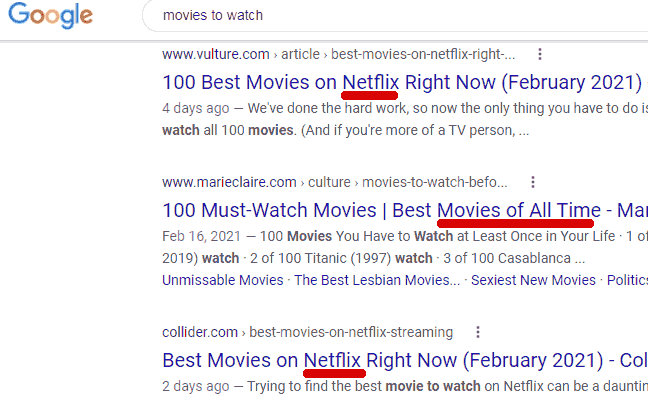Google’s John Mueller answered if it’s helpful to add more words to a web page to help it rank better. The idea was that if a page wasn’t ranking, adding more relevant content will help.
Will Adding Relevant Content Help Rankings?
The person asking the question wanted Mueller’s opinion as to the efficacy of improving a web page by adding additional content that was relevant.
The person asking the question was unclear about what they meant by “relevant content,” which can mean different things. It boils down to whether the content is relevant to keywords or if the content is relevant to user intent or if the content is relevant to people.
There are a multitude of ways content can be relevant, with some versions of “relevance” being, in my opinion, more useful for ranking purposes than others.
Here’s the question:
“Let’s say I want to improve content on a page. I add as much relevant content as I can for the users.
Does this mean that when I add relevant text to the page, Google automatically assumes that the page is better?
Does it work out like that? Is more text better in the eyes of Google?”
The person asking the question related that those in charge are insisting that improving rankings is “as simple” as adding more text.
Updating Content is Not a Simple Process
John Mueller began by stating that updating content is more nuanced than adding more content:
“It’s definitely not quite as simple as that.”
Is Content Quality Linked to Word Count?
There is a common perception that quality articles are comprehensive. Because quality articles are comprehensive it follows that those articles are inherently longer.
How can an article be both comprehensive and not on the long side, right?
I see this quite often. Quality is often equated to comprehensiveness, which means a higher word count.
Google’s Mueller continued his answer by remarking on the idea of word count in the context of quality and ranking factors.
Mueller explained:
“From our point of view the number of words on a page is not a quality factor, not a ranking factor.
So just blindly adding more and more text to a page doesn’t make it better.”
Mueller next put the idea of content within the example of a book versus a brochure and what the user feels is useful to them.
He said:
“It’s a bit like if you want to present something to a client who’s walking in, you can give them a one or two page brochure or you can give them a giant book of information.
And in some cases people will want a book with a lot of information. And in other cases people want something short and sweet.
And that’s similar to search.
If you have the information that you need for indexing for …kind of making it so that users and Googlebot understands what this page us about, what you’re trying to achieve with it uh… in a short version then fine, keep a short version, you don’t need to make it longer.
Just blindly adding text to a page doesn’t make it better.”
What About Thin Content?
Some people may say that thin content is an example of content that Google won’t rank because it’s too short.
But that’s not the case.
Thin content is commonly thought of as content that is short. A more precise definition is content that lacks usefulness. Factors that define thin content include more than how many words are on a page.
Improving Articles for Better Rankings
Improving an article to hopefully improve the rankings can be somewhat complicated. It has nothing to do with word count and the following is an explanation.
First, you have to assess what the web page is about and if that web page fulfills the mission of communicating the information a site visitor wants.
Improving Content that Lost Relevance
Sometimes an article fails because it’s not about what users mean when they search with a particular query. Also, what people mean when they search for something can change with time. In that scenario, that means a web page on a topic is no longer relevant to what a searcher is looking for because the meaning has changed.
A good example is someone searching for “movies to watch.” In the past that could mean movies to watch in the theater.
Today, during the pandemic, Google returns search results about what movies to stream at home.
Screenshot of Search Result Showing How Rankings Align with User Intent

In the above example, someone’s web page about movies to watch in theaters will have lost traffic. What users mean when they use this query changed. The content creator must also pivot with the user to keep attracting traffic.
This example shows how updating content can have nothing to do with word count. It has to do with how the content is useful to users right now.
The reasons why content stops ranking can sometimes be teased out by identifying if the traffic gradually slowed down or if there was a definite date when the traffic dried up. These are data points that must be considered before drawing up a strategy of what to do to help an article rank better.
As John Mueller said, “…blindly adding text to a page doesn’t make it better.”
There has to be an explainable purpose to the content rewrite.
Citation
Watch John Mueller answer question about content quality and rankings at about the 20 minute mark:





![[SEO, PPC & Attribution] Unlocking The Power Of Offline Marketing In A Digital World](https://www.searchenginejournal.com/wp-content/uploads/2025/03/sidebar1x-534.png)